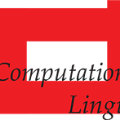With the explosive growth of online social media, the ancient problem of information disorders interfering with news diffusion has surfaced with a renewed intensity threatening our democracies, public health, and news outlets' credibility. Therefore, thousands of scientific papers have been published in a relatively short period, making researchers of different disciplines struggle with an information overload problem. The aim of this survey is threefold: (1) we present the results of a network-based analysis of the existing multidisciplinary literature to support the search for relevant trends and central publications; (2) we describe the main results and necessary background to attack the problem under a computational perspective; (3) we review selected contributions using network science as a unifying framework and computational linguistics as the tool to make sense of the shared content. Despite scholars working on computational linguistics and networks traditionally belong to different scientific communities, we expect that those interested in the area of fake news should be aware of crucial aspects of both disciplines.
翻译:随着在线社交媒体爆炸性增长,影响新闻传播的古老信息失常问题又重新出现,威胁着我们的民主、公共卫生和新闻媒体的公信力,因此,在相对较短的时间内发表了数千篇科学论文,使不同学科的研究人员面临信息超载问题。这项调查有三个目的:(1) 我们介绍对现有多学科文献进行网络分析的结果,以支持寻找相关趋势和中央出版物;(2) 我们从计算角度描述应对这一问题的主要结果和必要背景;(3) 我们审查利用网络科学作为统一框架和计算语言作为理解共享内容的工具的选定贡献,尽管从事计算语言学和网络的学者传统上属于不同的科学界,但我们希望那些对假新闻感兴趣的人应该了解这两个学科的关键方面。




